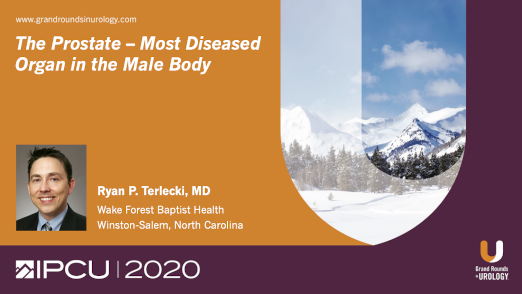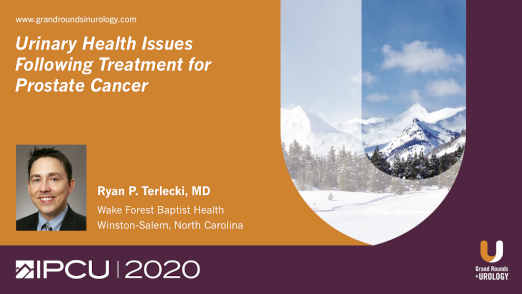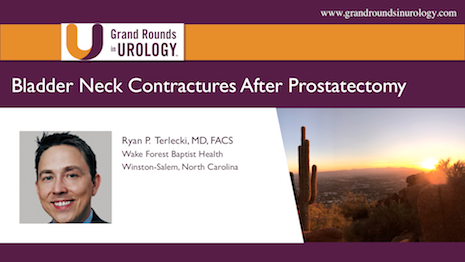Pitfalls in Perineal Surgery
Ryan P. Terlecki, MD, FACS, Vice Chair and Associate Professor of Urology, Director of the Men’s Health Clinic, Director of Medical Student Education, and Fellowship Director for Reconstructive Urology at Wake Forest University School of Medicine in Winston-Salem, North Carolina, discusses perineal surgery and key elements of preoperative planning to optimize the surgeon and patient experience while highlighting some intraoperative technical considerations to facilitate efficiency. He advises practitioners to choose patients commensurate with their own experience, to prioritize risk reduction, to under-promise and over-deliver, and to maintain technical poise. Dr. Terlecki addresses helping patients set expectations, which is dependent upon the patient’s preoperative level of suffering and upon the definition of success. He discusses patient preparation and the importance of doctors investing time to understand their patients as well as his own requirements, such as patients undergoing urine testing and suspending blood thinners preoperatively. He underlines the importance of clearly laying out the process—from start to finish—for the patient. He also warns of the “CURSED” patient—one who is compulsive-obsessive, unrealistic, revision-seeking, surgeon-shopping, entitled, and in denial. Dr. Terlecki then turns to optimizing the operating room through organization and aiming for what he calls “SWEET”; doing things the same way each and every time. He suggests video primers for support staff and an instrument and equipment checklist as well as pre-gaming with anesthesiologists and paying special attention to patient preparation. He addresses antibiotic stewardship before shifting to some technical items, highlighting the challenge of working in tight spaces during perineal surgery and the importance of surgeons freeing their hands and not struggling. Dr. Terlecki discusses the importance of illumination and magnification but advises surgeons to be mindful of ergonomics and equipment weight. Dr. Terlecki discusses considerations when doing artificial urinary sphincter (AUS) surgery, such as challenges when a patient has had a prior sling, before turning to combination cases (sling or AUS with inflatable penile prosthesis [IPP]). Here, he advises surgeons to accomplish the sling part of the operation first, noting that single-incision approaches are problematic and there are implications for the patient, the surgeon, and the hospital. Dr. Terlecki offers several items that allow for more efficient use of the surgeon’s time during urethroplasty. For example, surgeons should know whether the repair is an anastomotic repair or a substitution repair. He prefers scoping before and during the procedure to avoid a suboptimal incision site and addresses instruments that can be helpful throughout surgery. Dr. Terlecki then turns to the principles for urethral surgery, and poses a question for practitioners’ consideration: “If this was going perfectly, what would it look like?” He closes by citing Sir William Osler who advocated for equanimity, meaning the ability to calmly assess a situation, determine the best course of action and correction, and then to move forward. Dr. Terlecki discusses the importance of asking for help when needed, emphasizing that reaching out also helps build relationships and is a sign of excellence, not weakness.
Read More



